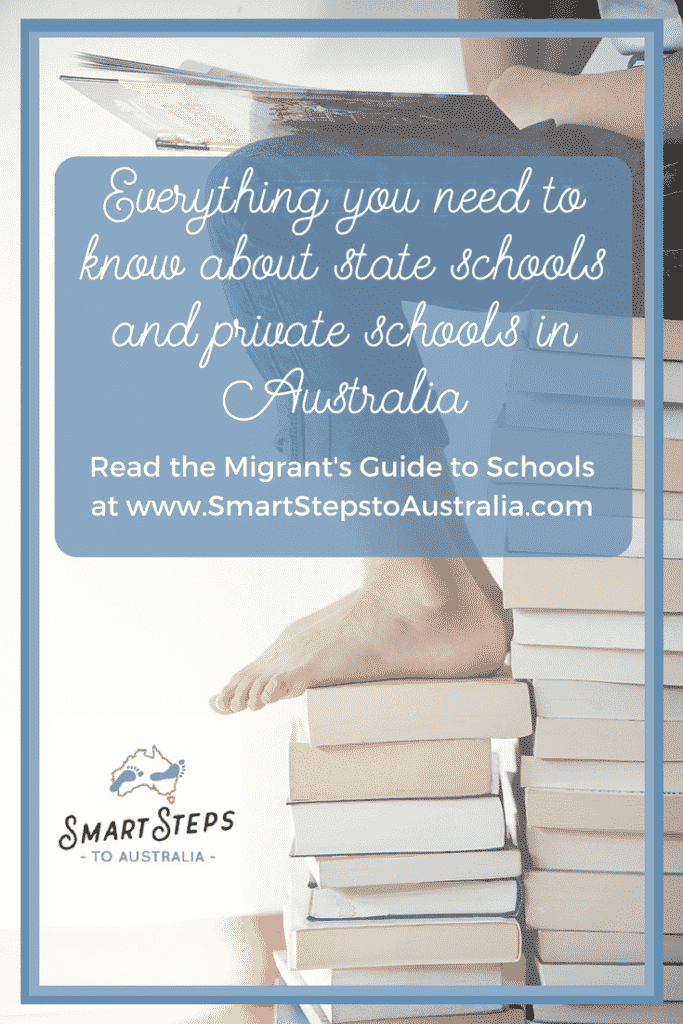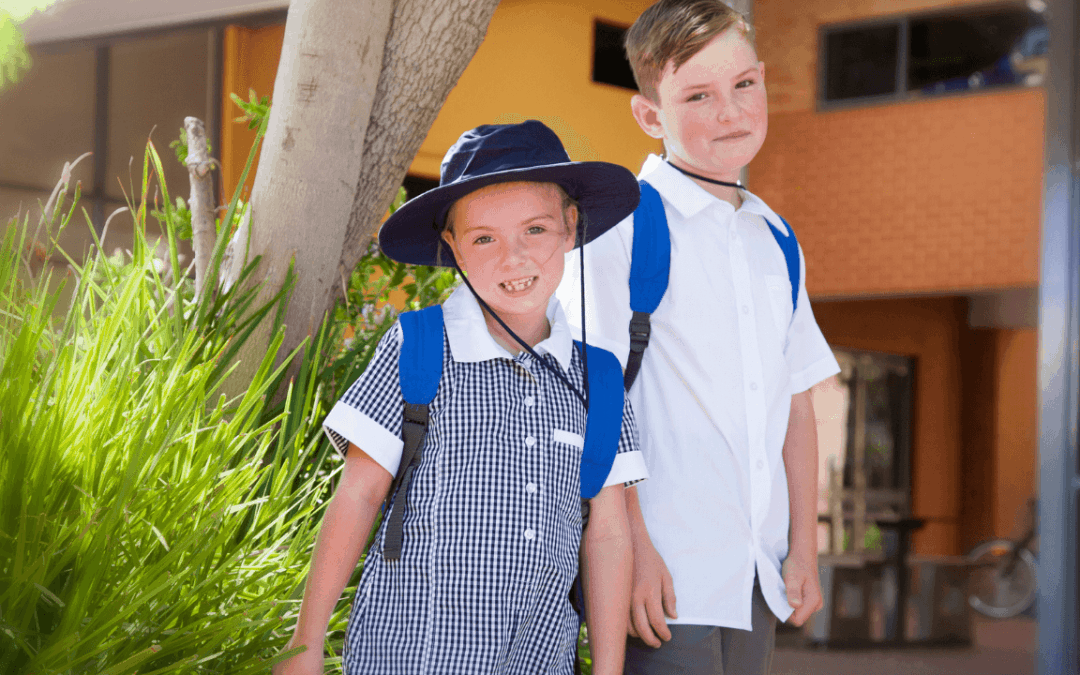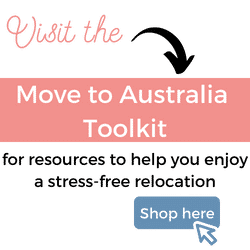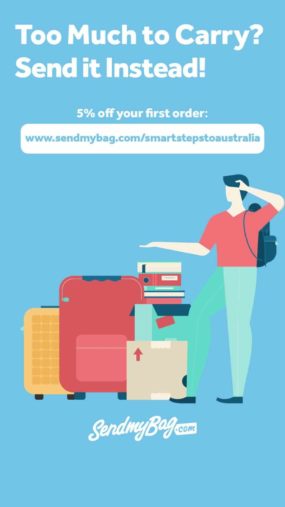If you’re moving to Australia with kids, the chances are you’ve got concerns about what schools are like in Australia. You want your kids to have an amazing education and the Australian education system is very different to other countries in so many ways.
This post will go through some background about schools in Australia, the Australian school year, school age in Australia and give you a general background about education in Australia.
Table of Contents
Picking a school in Australia: Our story
Before I get started with some of the information about schools in Australia and choosing the right school for your kids, I wanted to give you some background about our experience choosing a school in Australia when we first arrived.
When we moved to Australia, we planned on sending our kids to a local state school. We’d picked a couple of state schools in the area we were moving to that sounded good and planned to visit those when we arrived. When we landed, we started chatting to families in the parks and making friends. We met some families who weren’t happy with some of the things like bullying at the schools we were considering. (Obviously, all schools have issues and for every family that doesn’t like a school there are often ten families that do like it so although it’s important to ask around, it’s also important to make your own mind up based on your own research as well.)
Talking to other families made us realise that some private schools here were a lot less expensive than we’d realised. We hadn’t even checked out prices as we’d assumed they would be way out of our price range – especially as Matt didn’t have a job when we arrived. It turned out there were some local church schools that weren’t too expensive. We decided to view two of them along with the state school near our rental.
The state school looked great. There were plenty of positives about it – it had its own swimming pool, they accepted anybody that applied regardless of whether you were in the catchment area or not, and the staff were really friendly. It had a big focus on free creative play through the early years (which was similar to the local school our kids would have gone to if we’d stayed in the UK).
Then, we went to view the two private schools.
One was fine and again, we’d have been happy sending our kids there. The teachers were great, it was a small primary campus (the adjoining high school was in a different suburb) so everybody knew one another and it had a lovely welcoming feel to it. It actually reminded me a lot of the village primary school I went to as a child.
The second private school had incredible facilities, the teachers walking around were all being greeted warmly by the students, it had air conditioning in the classrooms and I was just amazed at the feeling of community even though it was a very large campus that took kids from prep through to leaving school. It also had a kindy and daycare centre on site, meaning I could do one drop off for all three kids without ever needing to drive around to different schools to do drop offs. It DIDN’T have a pool (unlike the state school) but it had other outstanding facilities like a full-sized catering kitchen, a cafe, big auditorium, an aviation workshop and plenty of space for sports. While there was a focus on creative play in the early years, it was more structured which we knew would suit our twins more than free play (which they found very overwhelming).
Of the three schools we visited, the third school stood out for us. We were lucky that there were still places available (we viewed it in October for a January start for prep), so we applied, had interviews (which were very straight forward – more on that below) and were accepted the same week. We then booked all three into the kindy/daycare centre so our twins could begin making friends for a few weeks before they started school and it all came together perfectly. Now, our boys have just gone into year six and our daughter is in year three and they are all thriving there (we moved house not long after starting school but we chose to keep the kids in this school as it’s only a 15-minute drive from our home).
As our boys are now in their last year of primary school in Australia, I’m trying to encourage them to look around some other high schools so they can make an informed decision about where they want to go but at the moment they are dead set that they want to stay where they are.
I’m sure our kids would have also thrived in a state school too if we’d found the right one for them. A lot of our friends’ kids go to state schools and are having great experiences. It’s just that we made the call based on the community feel of our school and the structure of the early years teaching, and for us it was the right move.
I honestly think that when it comes to choosing a school in Australia it’s less about whether it’s private or state (there are good and bad of both out there), it’s more about choosing the school that suits your child and your family. To get that choice right, it’s about getting clear on what you want from a school.
Are UK schools better or worse than Australian schools?
Somebody recently asked me if primary schools in Australia are better or worse than primary schools in the UK. Our school in Australia has amazing facilities and resources that are above anything we’d have found in the UK in a regular school but then we pay a fee for our school so I don’t think it’s fair to compare. I don’t think our school is at the same level as a UK private school, but then our school costs a fraction of the cost of a UK private school.
I have lots of friends whose kids go to state schools and they’ve been very happy with them. I know a lot of people in Facebook groups who say schools here aren’t as good. Personally, I wouldn’t say one country has better schooling than the other – it’s all down to the individual school in Australia, so do your research.
State schools in Australia: Fees to consider
Permanent residents in Australia can attend state schools for ‘free’ (although technically they aren’t totally ‘free’ from fees, but I’ll come to that in a minute).
Residents who are on certain types of temporary visas, however, may find that their state/territory of residence charges an annual fee for state schooling. This information is changeable, and each state has its own rules, fees and exclusions, so rather than publish something that is quickly going to be out of date, I suggest that you run an Internet search for ‘state school fees’ with your visa type and the state you’re moving to (not all states/territories charge but an increasing number of them do). It’s also worth talking to your migration agent, if you have one, as they will be able to advise on your visa choice and the best path for you to become permanent residents if that is your end goal (if you don’t have an agent, I highly recommend you check out my resources page.)
Unlike in the UK, state schools in Australia (also known as public schools) aren’t totally ‘free’ for permanent residents either. You are asked to pay an annual ‘voluntary contribution’ to cover various extras needed to run the school. What you’re asked to contribute varies from state to state, and while that fee is voluntary, it’s a fee that you are encouraged to pay. With state schools, you are also likely to have fees to pay for additional activities like school trips, camps and swimming lessons (at some private schools these costs might be included in the fees). I can’t give you a figure for what these types of fees might add up to as it varies so much, so it’s worth sending an email to schools in the area where you’re looking to move to see if you can get a list of costs so you’re prepared for it (most of them will have this info available clearly on their website).
Some schools involve you buying books and iPads or laptops, and others loan them out to kids, so again it depends on how your chosen school works as to what your outgoings are likely to be each year. Narrow down your school choices and then you can get into more detailed research like this.
For high school, I love that Australia has some amazing specialist state schools. In Brisbane, there is an Aviation High School which has a strong focus on STEM and aerospace education. There are high schools that focus on science and performing arts, so if you have a child that excels or has an interest in a certain career I think Australia has a fantastic education system to really encourage that (some of these specialist schools have selection criteria). There is a great relationship between schools and industry in Australia so kids can also get real-life work experience while studying (much more than just the one-week’s work experience I remember doing in the UK when I was at school).
Private schools in Australia: Fees to consider
If you choose to send your kids to a private school, you don’t need to pay your private school fees in Australia upfront for the year (although if you choose to, you often get a discount for doing that). You can usually pay your fees termly, or break it down to monthly or fortnightly to spread the cost (think about how often you will get paid in your job here – many jobs pay weekly or fortnightly in Australia so for us we find it helpful to pay our school fees fortnightly).
At our school, we receive a discount the more children we send (i.e. with three kids in school we get 15% off across the school fees). Some private schools in Australia charge 100% of the fees for child one, 5% off for child two and 10% off for child three which obviously adds up to a smaller discount. Every private school has a different fee structure.
We have to buy our uniforms from a designated school uniform shop (or there is a second-hand uniform shop plus a lot of second-hand sales on Facebook) so we can’t cut costs by buying from a cheaper store like Kmart or Target like you often can with state school uniforms. We also have to buy our books and stationery annually just before Christmas (which can be $100 – $300 dollars per child and is definitely not well-timed just before Christmas!). Our school provides iPads for the kids until they get into late high school so that is one less expense to think about. Some other high schools charge a laptop fee and provide one.
Our school fees include a two-week intensive swimming programme at an off-site pool each year in prep to year three, plus an excursion per term and some overnight school trips and camps as they get older. Private music lessons and instrument hire costs more.
I have friends at other private schools where their school fees include stationery, books, music lessons and other things, so do your research to understand what is and isn’t included so you can factor in any extra costs. Private schools can also have levys like state schools – you’ll see those listed in the school fees and enrolment section which you’ll find on the school’s website.
In high school, like with state schools you can really look for schools that encourage your child’s interests. Whether that is performing arts, STEM subjects, aviation, theatre, catering etc. you’ll find some schools really focus on certain subjects and have a lot of investment into facilities in different areas.
It’s important to also note that private school fees go up considerably when your child reaches high school!
Private school interviews for prep
If you apply for a private school, you’ll be invited with your child to attend an interview. This is really just a chance for the school to meet the parents and child and have a chat. I remember being horrified when our twin boys decided to crawl under the desk of the lady doing our interview! They were absolute terrors and didn’t want to draw the picture she asked them to draw or even answer her questions, but she understood she had two boisterous four-year-olds in her office and laughed about it! It definitely wasn’t something to worry about and was just a formality.
Selective schools in Australia
As well as state schools and private schools, there are also selective schools. These are like UK grammar schools, so accept children based on their academic achievement. Many of the specialist state high schools and academies have selection criteria.
Catchment areas in Australian schools
In my experience, catchment areas in Australia aren’t as much of an issue as they were in the UK (however, I live in an outer suburb, not a busy city). The state schools I’ve spoken to near me said they would take anyone who applied, regardless of if they lived within the official catchment area. I know other schools are more strict on catchment zone though in busier areas, so it’s worth speaking to the schools you’re looking at to find out their policy and availability.
Private schools don’t care where you live, so long as they have a place available for you (and they can get booked up early so you may need to go on a wait list).
School age and Australian school years
Different states and territories have different criteria for school starting ages in Australia, so Google ‘school starting age in…’ and add your chosen state to find the latest rules. There will usually be a chart on the state government site that shows you the start date depending on their date of birth. Our kids all started school four months later than they’d have started in the UK (so in the January instead of the previous September) so they are still in the same school year they’d have been if we’d stayed in the UK, but that is down to when their birthday fell in the year. I know others whose kids repeated the same year again when they arrived.
People here are much more chilled out about starting school. I know a few people whose kids were born around the cut off date and they decided to hold them back for a year and start prep a year later. I also know quite a few people who kept their child back to repeat prep a second time as they were struggling. I like that the emphasis here is on making sure the child is ready to move on, and that parents and teachers make the decisions like this together.
The school years in Australia begin in late January and run to December (some private schools end in November) with our long summer holiday taking place over Christmas. We don’t have half terms here. Instead, we do long ten-week terms and then have a couple of weeks off.
Testing in Australian schools
They do a lot of testing in Australian schools. I don’t have experience of the UK system to know how it compares but I imagine it is similar. My kids don’t feel any pressure about the tests here though. To me, it feels like they are doing regular testing to keep a handle on the ability levels of the groups so they know who to offer more encouragement and support to, but I don’t feel it is having a negative impact on the kids. NAPLAN tests take place in years 3, 5, 7 and 9 and that is a bit more focused than the regular testing that goes on through the year.
Homework in Australia
In primary school, our kids’ main homework has been around reading and maths. It has never been very onerous. Just reading a bit every night and keeping a reading lot, and from about year two onwards there are some extra tasks to do like writing out tables and preparing for an oral presentation or something. We usually get our homework on a Friday and then return it on the Thursday. Some of their teachers actively tell us they don’t mind if they don’t do homework because they feel kids should play outside school rather than work all the time, so it is very relaxed. I’m sure this will be very different when we get to high school.
Again, all schools will have a different attitude towards homework so it’s a good question to ask when you’re viewing schools.
Taking time off from school in Australia
Another thing I love about schools here is that they are so chilled about you taking time off during term time. I know many families take their kids out for a day to go to an attraction, or to go on holiday. The teachers (at our school at least) are really encouraging as they know you’re taking them out to give them some life experiences. When we’ve gone away during term time, we ask for extra reading books and some homework to do, but the teachers don’t push this on us at all. They just tell us to go away and have a good time and then encourage the kids to do a show and tell when they get back to explain what they’ve been up to.
When we go on holiday, our kids get amazing experiences like snorkelling a coral reef, learning about geology or Aboriginal legends or visiting an ancient rainforest filled with wildlife… As a travel writer, I really love that our school values these experiences and supports us as I know my kids learn more from this than they would in a text book. Sometimes these things need to happen during term time (for instance, we pulled the kids out of school for a few days last year to go and see turtles coming in to nest at Bundaberg as the tour was booked up for the entire season apart from this one date and we really wanted to see it!)
As terms come to an end, we’ve also been told by teachers lots of times that we can keep the kids at home if they’re getting really tired. Teachers know that ten weeks is a long stretch and little ones can really get exhausted. Taking a day out can be just what they need to get through the last busy few days of term and it really eases the pressure to know it’s OK to take a family day.
Religious schools in Australia
Private schools in Australia are mostly tied to a church, and some of them can be very religious in their teachings (and others, less so). There are independent schools, but these are more expensive as they aren’t subsidised by a church. You don’t need to be the religion of the school to send your kids there, but you do need to be happy with the religious teachings of your chosen school.
You won’t be treated any different if you aren’t religious, but if there is only one school place left and two families want that place then the priority will be given to the family that is the religion of the school.
Should I send my kids to a state school or a private school in Australia?
I can’t tell you that. Every school is unique and there are some amazing state schools and some poorly performing ones. The same applies for private schools too – just because you’re paying a fee doesn’t guarantee the teaching or facilities will be any better quality.
Before you move, I think it’s a good idea to reach out to a few schools (if you know the area you’re moving to) to find out more details about availability/catchment/fees and I also think it’s worth joining some local community groups on Facebook so you can ask questions about schools.
I really feel that to make the final decision though it’s important to go and visit the school in person – choosing a school in Australia and finding the right school for your kids will really help them get settled (and when they’re settled that takes a huge weight off you!). Of course, you can change schools if it doesn’t end up being right (and moving schools seems very common here) but I think it’s good to try to choose the right school at the outset if you can so your children can begin making friends and putting down roots.
Resources to help you choosing a school in Australia
There are lots of resources online about schools in Australia. Here are a few sites to get you started:
The Good Schools Guide
The Australian Schools Directory
My School
Private Schools Guide
Better Education
NAPLAN
Looking for some more support?
Check out my Ultimate Emigration Checklist which brings your entire migration to-do list together. No need to spend hours trawling on Google – this list walks you through everything you need to do before, during and after your move and takes away the stress and the unknowns.
My goal when I created this checklist was to make the whole process as easy as possible for you so you can spend your time making memories with the people you love instead of stressing over which admin task to do next! This checklist has supported hundreds of families making their move to Australia. Get yours here!

















